Results
-
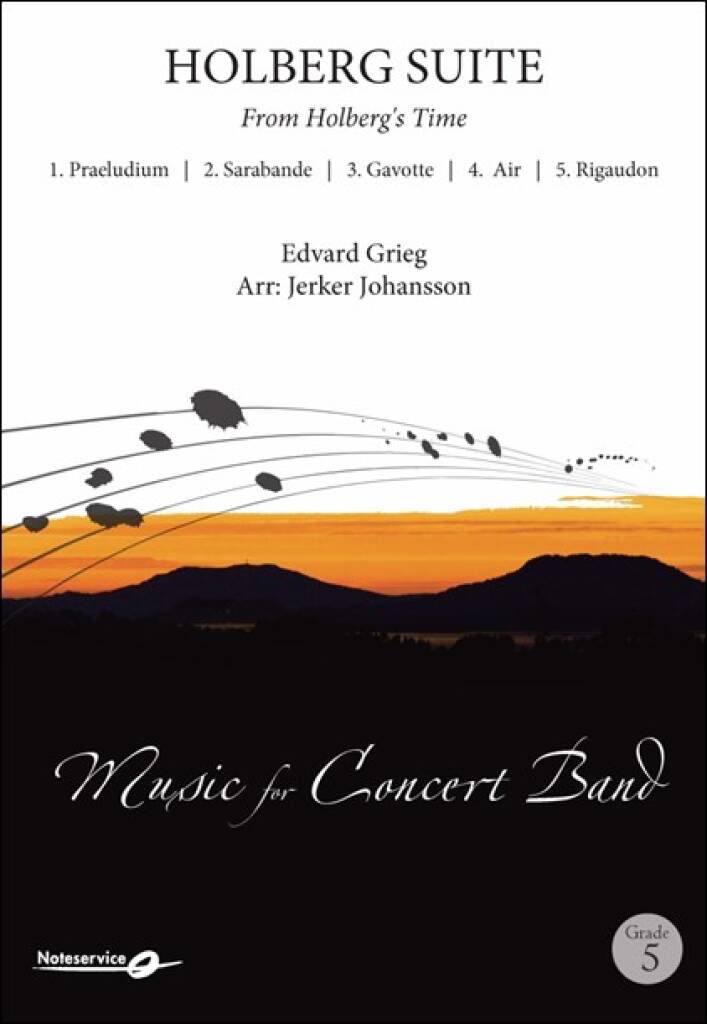 £252.10
£252.10Holberg Suite - Edvard Grieg
Edvard Hagerup Grieg (1843-1907) was a Norwegian composer and pianist. He is widely considered one of the leading Romantic era composers, and his music is part of the standard classical repertoire worldwide. His use and development of Norwegian folkmusic in his own compositions put the music of Norway in the international spectrum, as well as helping to develop a national identity. Grieg is regarded as simultaneously nationalistic and cosmopolitan in his orientation, for although born in Bergenand buried there, he traveled widely throughout Europe, and considered his music to express both the beauty of Norwegian rural life and the culture of Europe as awhole.1884 was the bicentenary year of the birth of Ludvig Holberg (1684-1754)and as a part of the celebrations various Scandinavian composers were commissioned to write commemorative pieces. From Holbergs Time was one of Griegs contributions. It was first written for piano but in 1885 the composer transcribed it for stringorchestra. For his suite Grieg went back to some of the musical forms used by Holbergs contemporaries but although the forms and style may be rococo the contents are unmistakably characteristic of Grieg himself. Grieg gave the first performance ofthe piano version in Bergen, Holbergs birthplace, in December 1884.
Estimated dispatch 7-14 working days
-
£63.99
Nurture - Edward Fairlie
"There are some people for whom the act of nurturing is innate. The work they do is often unheralded, acknowledgement of their effort the last thing on their mind. But nurturers carry pain, too. Their own burdens, anxieties and hardships often take a back seat to that nurturing impulse. This piece is a meditation on that idea; that some people, not without their own deep personal obstacles, can't help but live out the powerful instinct to hold those around them in a warm embrace of care." - Edward Fairlie -
Estimated dispatch 7-14 working days
-
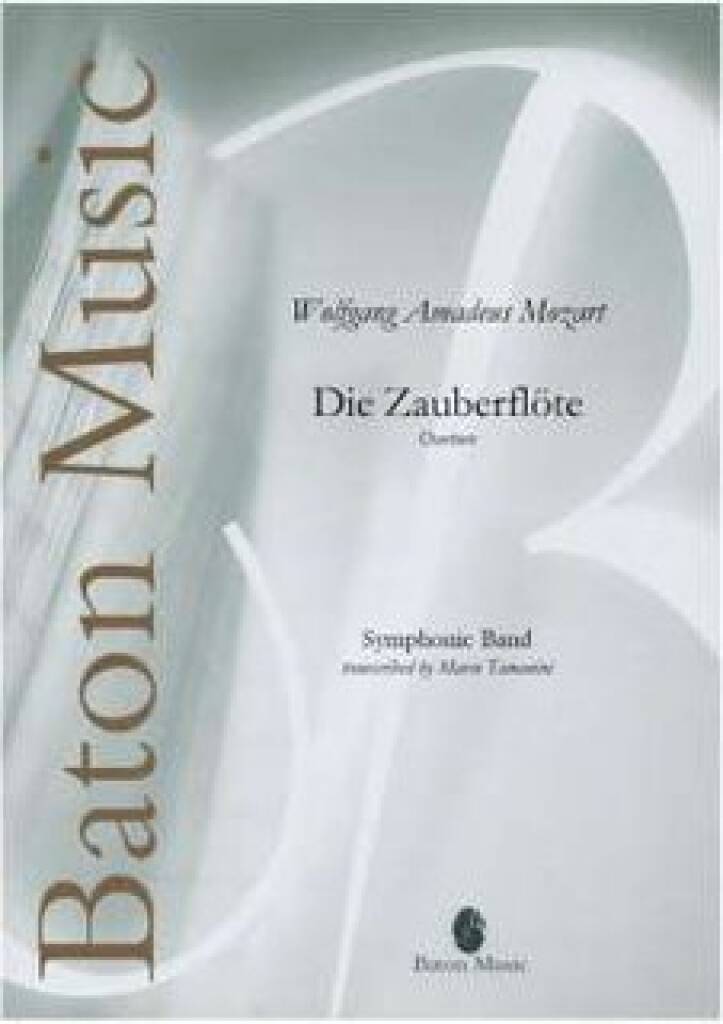 £116.90
£116.90Die Zauberflte - Wolfgang Amadeus Mozart
'Die Zauberflte' isn't a romantic love story but a real parable: a resemblance about higher human striving to purity and self-improvement. Not love between two people is in the centre but a more individual and higher form of it that should exist between all people. 'Die Zauberflte' Overtrure is also available in a version for Wind Ensemble (2 flutes, 2 oboes, 2 clarinets, 2 bassoons and 2 horns). Please contact our customer service at [email protected]
Estimated dispatch 7-14 working days
-
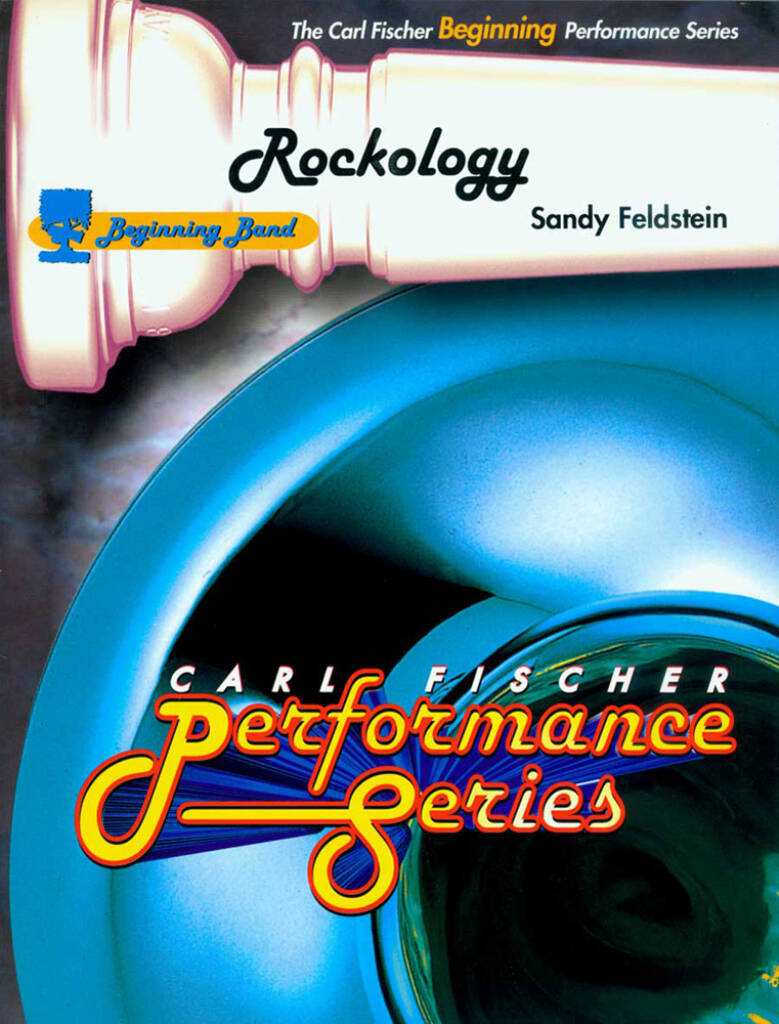 £59.95
£59.95Rockology - Sandy Feldstein
This enjoyable rock-styled piece makes much of a simple syncopated figure and will help to instill good counting habits in a young band. The percussion parts are musically active, but the rest of the band uses only the first 6 notes that are taught to beginners. The resulting piece is great fun to play but easy to prepare. Duration: 2'15"
Estimated dispatch 7-14 working days
-
£106.95
Forever Climbing - Larry Clark
Forever Climbing was written as tribute to the loss of a high school band student that was tragically killed in a rock climbing accident. It is not intended as a sad piece, but as a celebration of the life of this exceptional young man. At times the piece is contemplative, but also contains a joy that is to depict the way he lived. As the piece builds to its conclusion, the listener will have a sense of fulfillment in a life well lived, even though it was cut short. A moving new addition to the band repertoire.
Estimated dispatch 7-14 working days
-
£78.95
Will Drum for Food - Carl Strommen
No disrespect to percussionists, but this piece is for those headbangers in the back of the band! It is a great way to feature them and you may even want to bring them to the front, but be careful, they may just take over! This piece is tons of fun!
Estimated dispatch 7-14 working days
-
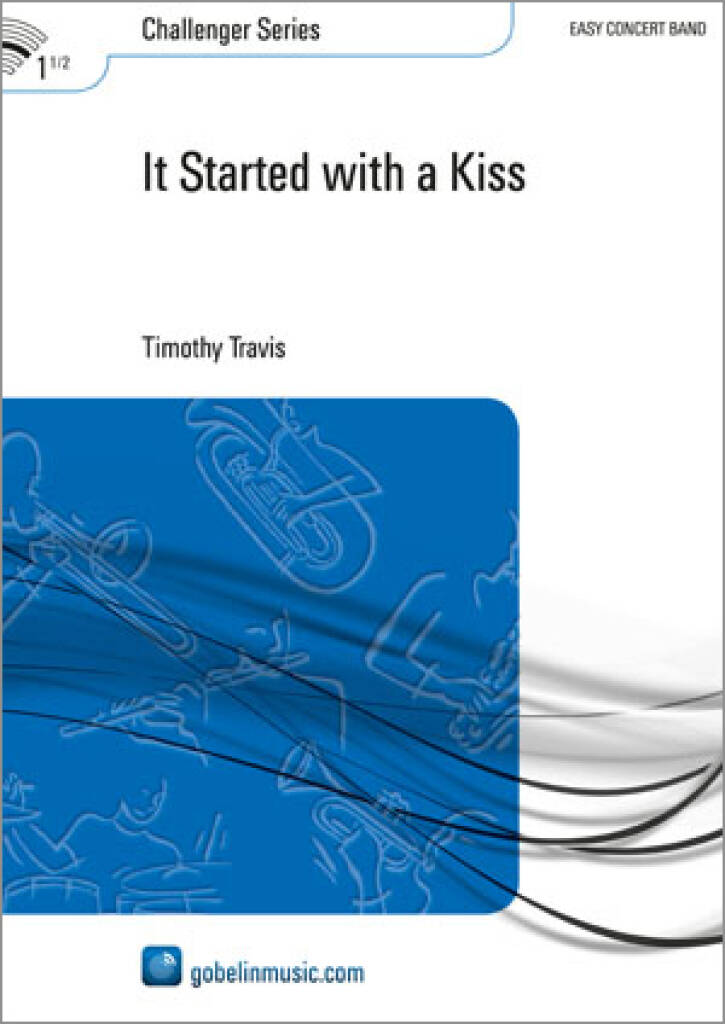 £60.99
£60.99It Started with a Kiss - Timothy Travis
This delightful ballad, in which the Alto saxophone plays a leading role, will remind many people of a very special moment in their lives. A lot could be said about it, but perhaps it is better to let the music speak for itself. While listening to this romantic ballad, unforgettable moments are sure to be relived by many people. Daydreaming is allowed, but don't forget to pay some attention to the soloist's performance it will be worth your while.
Estimated dispatch 7-14 working days
-
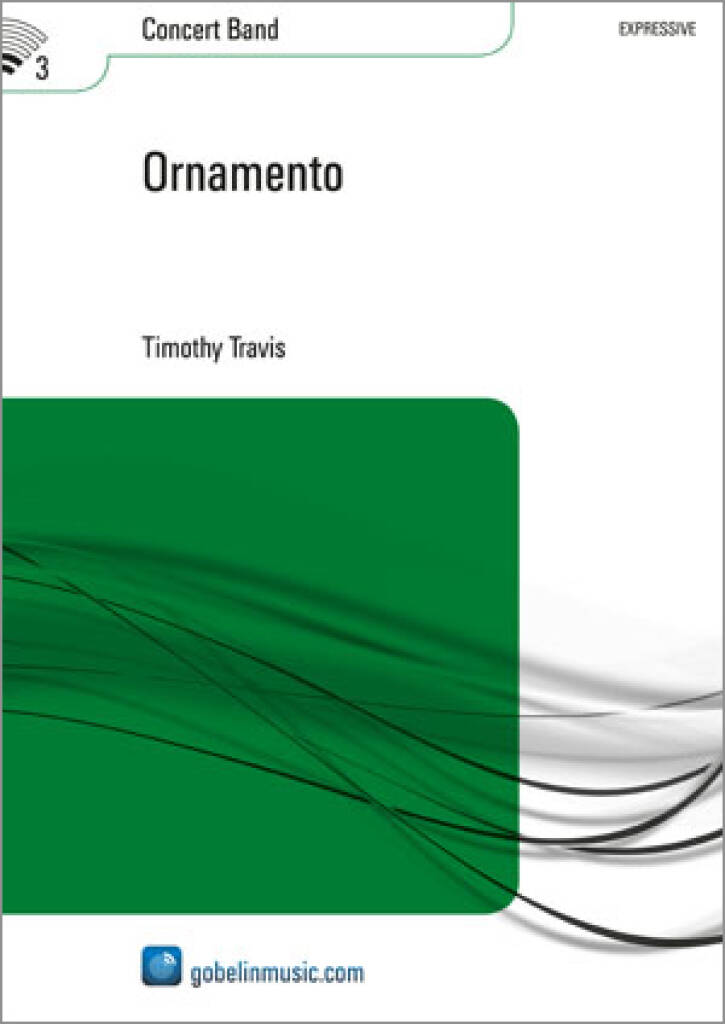 £94.99
£94.99Ornamento - Timothy Travis
A little work almost begging to be kissed ! So deceptively simple but because of that also containing a good many of the well-known snakes in the grass. The work was premiered as a warm-up for a contest, but it may be played in many ways in various occasions. Whiffs of baroque and pinches of romanticism melt in this little contemporary work. Een beeldschoon werkje, refererend aan de barok en de romantiek. Zeer geschikt als inspeelwerk voor een concours/festival of als rustpunt tijdens een concert.
Estimated dispatch 7-14 working days
-
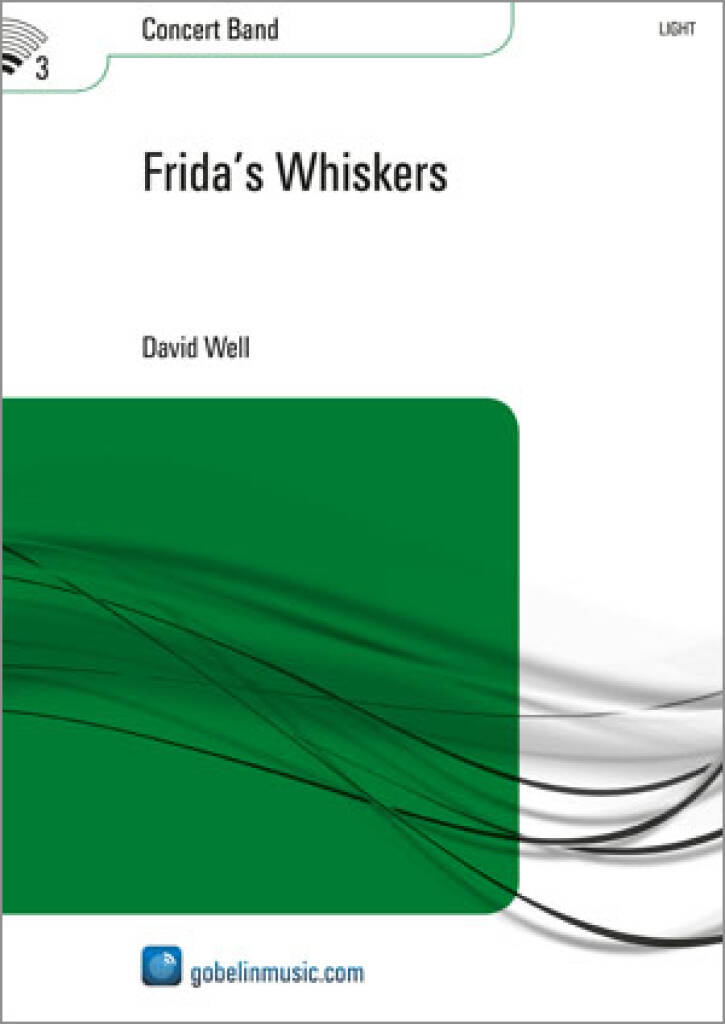 £109.99
£109.99Frida's Whiskers - David Well
David Well composed 'Frida's Whiskers' in commemoration of his own cat, who met an untimely end. Frida (whose real name was 'Godefrida van Coopersburg thoe Nieuwenhuys') was a lively creature, who led a playful and uncomplicated life. She used to sleep in her basket for hours, but when she woke up she upset the entire house and its furnishing. Curtains were inspected from top to bottom and flower pots fell from window-sills just like that! Outside, in the open air she was in her element. She used to frolic, bouncing into the air. After such playful moods she would return to her basket tired but satisfied where, being the cleanly cat that shewas, she subjected her entire body, whiskers included, to a thorough wash.
Estimated dispatch 7-14 working days
-
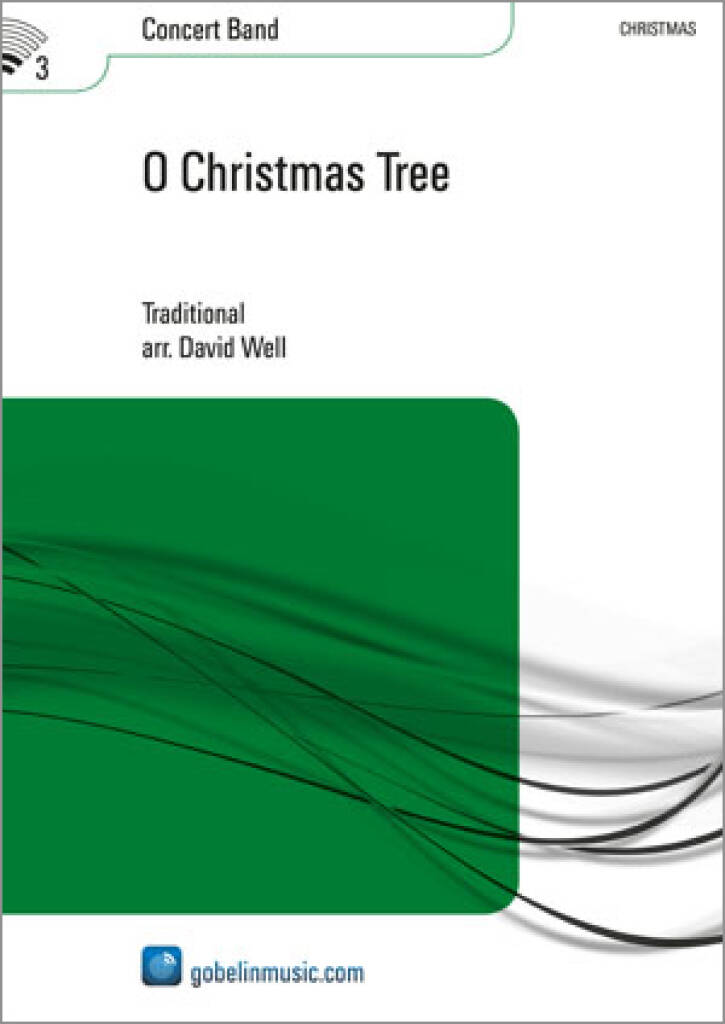 £94.99
£94.99O Christmas Tree
The tradition of the Christmas tree in Western Europe dates back to a time long before any Christianization had taken place. During the severely cold winter nights, so it was believed, evil spirits tried to 'kill' nature. Needle-leaved trees were the only ones which kept their green colour throughout the year, and therefore became symbols of immortality. These 'living' trees, said to be the work of benign spirits, were brought into people's houses to ward off evil, life-threatening powers. In the 14th century people first started to decorate Christmas trees. It was a pagan custom, originated by the inhabitants of Alsace. This custom was taken over by the Church inthe course of the 15th and 16th century. At first the decoration consisted mainly of edibles, such as apples and wafers, but later small presents were added. Legend has it that the reformer Martin Luther was the first person to decorate a Christmas tree with candles. The flickering candle flames were meant to create the image of a starry sky in which Christ's apparition could be recognized. The German organ-player Ernst Anschtz from Leipzig was the first person to notate the song 'O Tannenbaum', the melody being a well-known folk song. Next to 'Stille Nacht' 'O Tannenbaum' is the most famous German Christmas song, now known throughout the world. In the United States of America the melody of 'O Tannenbaum' has even been used in four States (among which the State of Maryland) for their State song. In David Well's arrangement the song is first heard as many of us know it. After this introduction, however, it is transformed into a solid rock version, and the beat has been changed. In the second part the familiar three-four time is back, but here the rhythm is different from the original. After the richly ornamented rock beat the basic theme can be heard once again and the composition is concluded in a festive manner.
Estimated dispatch 7-14 working days
